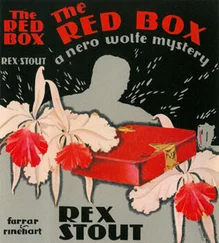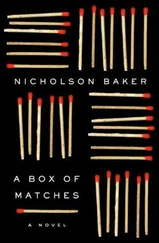Joe stood at the window after he dressed, blinking at the whiteout, a combination of feeling the frustration and dread churning within him. His thoughts from the night before still haunted him. He fought a wave of nausea as he recalled the brutality of Lamar’s murder. The fact that the murderer had sliced Gardiner’s throat-and while Gardiner was still alive and pinned to the tree-was particularly hideous. Whoever had done it was unimaginably brutal, and Joe couldn’t help but think that there wasn’t any randomness about it. He assumed that the killer had known Gardiner, or at least known who and what he represented. The longer it took to begin the investigation, the more time the murderer would have to get rid of evidence, wipe out his tracks, and build his alibi. The crime scene itself was inaccessible, with potential evidence-hair, fibers, blood-being pummeled and scattered by ice and wind.
Joe felt that, unlike hunters, who often policed themselves, whoever had killed Lamar Gardiner was not wracked with guilt. The killer was likely local, possibly someone Joe knew, possibly someone who would not stop with killing Lamar Gardiner if he felt threatened. Someone without a conscience.
And the murderer was out there, shielded by the fury of the storm.
Before breakfast, Joe retreated to his office to type up the report on Lamar’s murder for his supervisor, Terry Crump. He wouldn’t be able to e-mail it to him until the phones were back up, but he wanted to get the details down while they were still fresh in his mind. As a game warden, one of only fifty-five in the entire state of Wyoming, Joe Pickett had unique duties and obligations. Within his district, he worked virtually alone. His office was in a small anteroom off the living room in his house, and he had no administrative or secretarial staff. Marybeth, and sometimes Sheridan, took messages and served as unpaid assistants. The job of a Wyoming game warden was supposed to consist of one-third public contact, one-third harvest collection, and one-third law enforcement-with no area to exceed 35 percent. Supposedly, the percentages would balance out over the year. The hours ranged from 173 to 259 per month. Joe was paid $32,000 per year in salary by the state of Wyoming and provided with housing and a vehicle. He was supervised, sort of, by District Supervisor Terry Crump, a game warden as well, who was 250 miles away in Cody. Crump’s supervision consisted of an occasional telephone call or radio dispatch, usually after Joe had sent in his monthly report via e-mail attachment. Generally, Terry simply wanted to bullshit or trade departmental gossip. He had never called Joe to task, even when Joe’s activities had enraged the bureaucrats in Cheyenne, where the headquarters were. Although Joe sometimes worked in tandem with the county sheriff’s office or the Saddlestring police department, and even with federal agencies like the U.S. Fish and Wildlife Service, the U.S. Forest Service, the BATF, and the FBI, he was almost always on his own. He liked the autonomy, but there were problems inherent in it that came up when he encountered situations like he had the day before.
Joe was just finishing up his report when he looked up to see Sheridan, April, and Lucy crowding the door. They were still wearing their pajamas and slippers.
“If we don’t eat breakfast soon, I think I shall faint,” Lucy said dramatically.
Breakfast actually went quite well, the euphoric mood of his children carrying them all through it. Joe flipped pancakes to them from the stove, and they caught them on their upraised plates while squealing. For Marybeth and Missy Vankueren, Joe delivered pancakes to the table. Missy picked at her breakfast, foregoing both bacon and syrup.
“Do you have any idea how many fat grams there are in these pancakes?” she asked Joe. The three girls looked up, waiting for his answer. He didn’t disappoint them.
“Ten thousand apiece?” Joe speculated. Even Marybeth laughed at that. Missy made a dismissive face.
For his girls, a storm that forced all the adults to stay inside, play with them, and cook for them constantly was the best of all possible worlds. With the mood created by the Christmas decorations and the wrapped packages under the tree-as well as the unexpected visit by their grandmother-there was simply no better time. Sheridan said she loved storms. She declared that the worse the storm, the better she liked it.
As the girls ate, Marybeth did an inventory of her cupboards and the refrigerator, and declared with obvious relief that they had enough food and milk to last for several days without a trip to the grocery store. Joe added that the freezer in the garage was filled with elk and pronghorn antelope steaks, roasts, and burger.
“We can’t just eat red meat!” Missy protested.
“Why not?” Joe asked. The three girls laughed.
“He has a captive audience,” Marybeth observed to her mother.
“I see that,” Missy said, sipping her coffee
Although it looked impossible, Joe wanted to see if he could get his pickup running and free of the drifts. Wearing insulated Carhartt coveralls, a knit cap and facemask, and knee-high boots, Joe turned away from the wind and let the snow hammer his back. Despite the heavy clothing, the pure relentless ferocity of the storm chilled him. He’d had to dig into a drift that had formed around his pickup to find the tires before he could even start putting the chains on them. It had taken an hour on his hands and knees to slide the chains over the rear tires and secure them, and the icy steel links had frozen his fingers through his thick gloves. Two tires down, two to go. He kicked through the heavy snow until he found his already covered shovel.
As he dug out the front wheels, he looked up at the house. Lucy and April were watching him through the window. They were still in their pajamas, and both had candy canes stuck jauntily in their mouths like cigars. They waved, and Joe waved back. They watched him for a while as he put the remaining snow chains on. When he finally stood up and knocked packed snow from his clothes, they were gone.
Joe found himself staring at the window even though they were no longer there, specifically the spot where April had been.
April had appeared after Marybeth had been shot in the stomach, and their own unborn baby lost. There would be no more children. If Jeannie Keeley was in town and wanted April, there would be a battle. Marybeth wouldn’t stand idly by. Neither would Joe.
Shaking his thoughts aside, Joe climbed into his pickup and started the engine, slamming the truck forward, then back, letting the chains bite into the drifts. Gradually, he was able to maneuver around so that the truck faced the road. In an emergency, it would be easier to go forward than to try to back out. That was as much as he could do for a while, he thought, until the road was cleared. No one was going anywhere today.
Lumbering through the drifts like a monster, he fought his way back to the house.
Inside, after shedding his outer clothing, he found Marybeth, Missy, and the three girls crammed into the small room that housed the washer and dryer.
“Dad, you’ve got to see this,” Sheridan called out.
They parted to let him look.
The dryer’s door was open, and snow filled every inch of it. Apparently, the swirling winds outside had forced snow up through the outside wall vent, packing it inside.
“This is amazing,” Marybeth laughed.
Joe smiled-it would be a day of playing board games, baking cookies, and unusual proximity in their small house. As much as he felt he should get back out to the mountain, he simply couldn’t. He listened on his radio as one of Barnum’s deputies tried to reach the mountain by snowmobile, only to get lost in the blizzard, clip a tree, and turn back. All Joe could do was to stay in contact with dispatch and wait out the storm like everyone else.
Читать дальше












